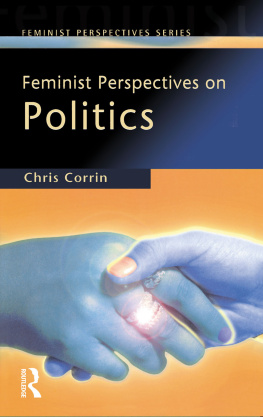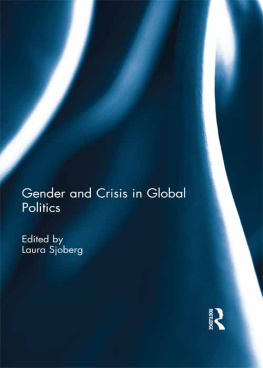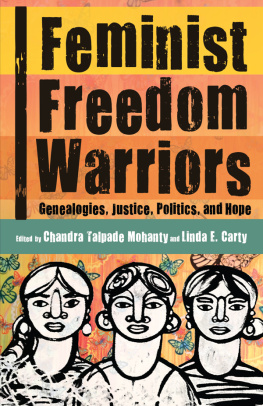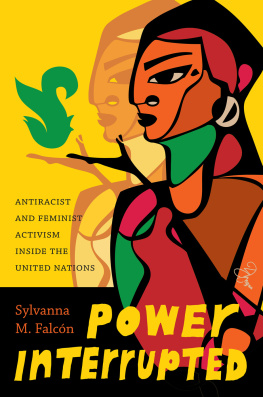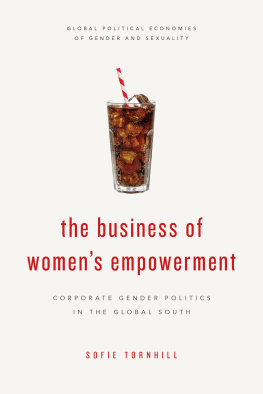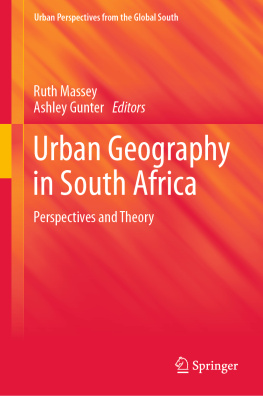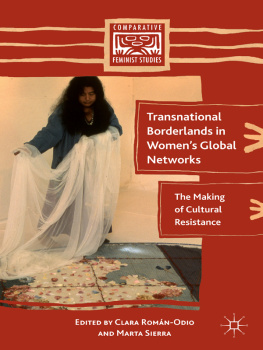Global Feminist Autoethnographies During COVID-19
Global Feminist Autoethnographies bears witness to our displacements, disruptions, and distress as tenured faculty, faculty on temporary contracts, graduate students, and people connected to academia during COVID-19.
The authors document their experiences arising within academia and beyond it, gathering narratives from across the globeAustralia, Canada, Ghana, Finland, India, Norway, South Africa, the United Kingdom, the United States along with transnational engagements with Bolivia, Iran, Nepal, and Taiwan. In an era where the older rules about work and family related to our survival, wellbeing, and dignity are rapidly being transformed, this book shows that distress and traumas are emerging and deepening across the divides within and between the global North and South, depending on the intersecting structures that have affected each of us. It documents our distress and trauma and how we have worked to lift each other up amidst severe precarities.
A global co-written project, this book shows how we are moving to decolonize our scholarship. It will be of interest to an interdisciplinary array of scholars in the areas of intersectionality, gender, family, race, sexuality, migration, and global and transnational sociology.
Melanie Heath is Associate Professor of Sociology at McMaster University. President, Research Committee on Women, Gender, and Society, International Sociological Association.
Akosua K. Darkwah is Associate Professor of Sociology and current chair of the Department of Sociology at the University of Ghana. Managing editor, Ghana Journal of Sociology and Anthropology.
Josephine Beoku-Betts is Professor of Women, Gender, and Sexuality Studies and Sociology at Florida Atlantic University. Past President, Sociologists for Women in Society.
Bandana Purkayastha is Professor of Sociology and Asian and Asian American Studies at the University of Connecticut. Executive Committee Member, International Sociological Association.
Routledge Advances in Feminist Studies and Intersectionality
Routledge Advances in Feminist Studies and Intersectionality is committed to the development of new feminist and pro-feminist perspectives on changing gender relations, with special attention to:
- Intersections between gender and power differentials based on age, class, dis/abilities, ethnicity, nationality, racialisation, sexuality, violence and other social divisions.
- Intersections of societal dimensions and processes of continuity and change: culture, economy, generativity, polity, sexuality, science and technology;
- Embodiment: Intersections of discourse and materiality, and of sex and gender.
- Transdisciplinarity: intersections of humanities, social sciences, medical, technical and natural sciences.
- Intersections of different branches of feminist theorizing, including historical materialist feminisms, postcolonial and anti-racist feminisms, radical feminisms, sexual difference feminisms, queer feminisms, cyber feminisms, post-human feminisms, critical studies on men and masculinities.
- A critical analysis of the travelling of ideas, theories and concepts.
- A politics of location, reflexivity and transnational contextualising that reflects the basis of the Series framed within European diversity and transnational power relations.
Core editorial group
Professor Jeff Hearn (managing editor; rebro University, Sweden; Hanken School of Economics, Finland; University of Huddersfield, UK)
Dr Kathy Davis (Institute for History and Culture, Utrecht, The Netherlands)
Professor Anna G. Jnasdttir (rebro University, Sweden)
Professor Nina Lykke (managing editor; Linkping University, Sweden)
Professor Elzbieta H. Oleksy (University of dz, Poland)
Dr Andrea Pet (Central European University, Hungary)
Professor Ann Phoenix (Institute of Education, University of London, UK)
Professor Chandra Talpade Mohanty (Syracuse University, USA)
Global Feminist Autoethnographies During COVID-19
Displacements and Disruptions
Edited by Melanie Heath, Akosua K. Darkwah, Josephine Beoku-Betts and Bandana Purkayastha
For more information about the series, please visit https://www.routledge.com/Routledge-Advances-in-Feminist-Studies-and-Intersectionality/book-series/RAIFSAI
First published 2022
by Routledge
2 Park Square, Milton Park, Abingdon, Oxon OX14 4RN
and by Routledge
605 Third Avenue, New York, NY 10158
Routledge is an imprint of the Taylor & Francis Group, an informa business
2022 selection and editorial matter, Melanie Heath, Akosua K. Darkwah, Josephine Beoku-Betts and Bandana Purkayastha; individual chapters, the contributors
The right of Melanie Heath, Akosua K. Darkwah, Josephine Beoku-Betts and Bandana Purkayastha to be identified as the authors of the editorial material, and of the authors for their individual chapters, has been asserted in accordance with sections 77 and 78 of the Copyright, Designs and Patents Act 1988.
All rights reserved. No part of this book may be reprinted or reproduced or utilised in any form or by any electronic, mechanical, or other means, now known or hereafter invented, including photocopying and recording, or in any information storage or retrieval system, without permission in writing from the publishers.
Trademark notice: Product or corporate names may be trademarks or registered trademarks, and are used only for identification and explanation without intent to infringe.
British Library Cataloguing-in-Publication Data
A catalogue record for this book is available from the British Library
Library of Congress Cataloging-in-Publication Data
Names: Heath, Melanie, editor. | Darkwah, Akosua K., editor. | Beoku-Betts, Josephine A., 1951 editor. | Purkayastha, Bandana, 1956 editor.
Title: Global feminist autoethnographies during COVID-19 : displacements and disruptions / edited by Melanie Heath, Akosua K. Darkwah, Josephine Beoku-Betts and Bandana Purkayastha.
Description: Abingdon, Oxon ; New York, NY : Routledge, 2022. |
Series: Routledge advances in feminist studies and intersectionality | Includes bibliographical references and index.
Identifiers: LCCN 2021038431 (print) | LCCN 2021038432 (ebook) | ISBN 9781032122625 (hbk) | ISBN 9781032122656 (pbk) | ISBN 9781003223832 (ebk)
Subjects: LCSH: FeministsHistory21st century. | Women scholarsHistory21st century. | Feminist theoryHistory21st century. | COVID-19 (Disease)Social aspects. | Social changeHistory 21st century.
Classification: LCC HQ1155 .G57 2022 (print) | LCC HQ1155 (ebook) | DDC 305.4209dc23/eng/20211022
LC record available at https://lccn.loc.gov/2021038431
LC ebook record available at https://lccn.loc.gov/2021038432
ISBN: 978-1-032-12262-5 (hbk)
ISBN: 978-1-032-12265-6 (pbk)
ISBN: 978-1-003-22383-2 (ebk)
DOI: 10.4324/9781003223832
Typeset in Times New Roman
by codeMantra
We dedicate this book to academics and their loved ones across the globe who have suffered and died due to COVID-19.
Illustrations
Figure
- 16.1 Frequency and percentage of COVID-related posts on my Facebook page 2020
Table
- P.1 COVID 19 cases and deaths. Selected Countries. July 13, 2021
Contributors
Malak Afaneh double majored in Politics & Middle Eastern Studies at Pomona College and is currently a first-year student at Berkeley Law School. As an undergraduate, she worked with the University Network for Human Rights and the National Council of U.S.-Arab Relations, served as the founder of Rosie the Hijabi, LLC, and was Pomona College Senior Class President. As the proud daughter of Palestinian-Jordanian immigrants, she hopes to practice international human rights law to help dismantling norms of violence and colonialism in the Middle East.


